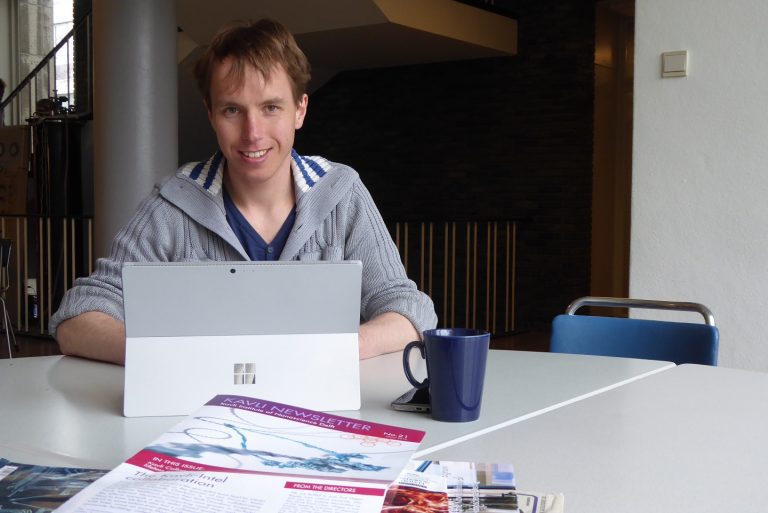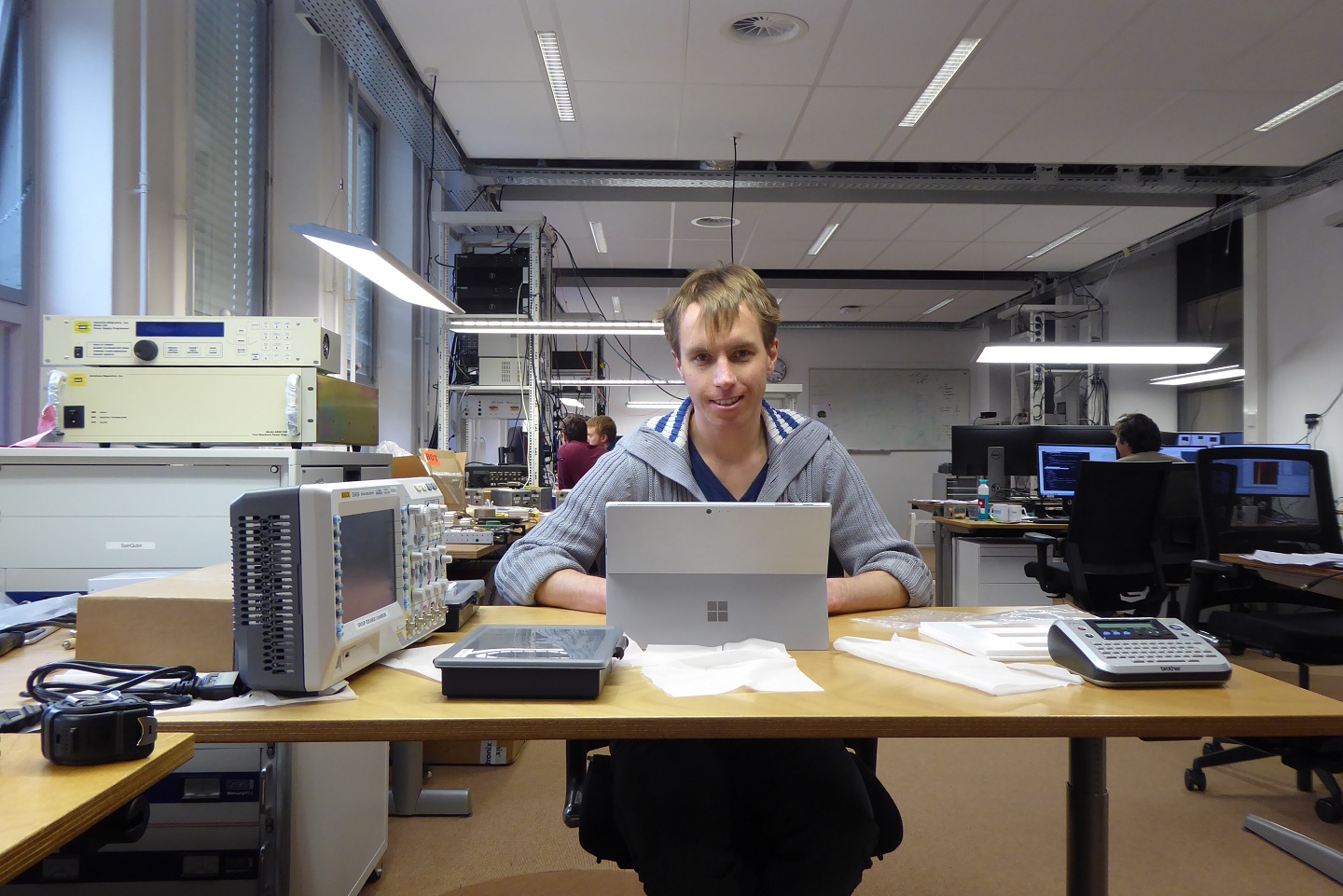When PhD candidate Jelmer Boter started his research at the Kavli Institute of Nanoscience, chip manufacturer Intel became the research partner. Balancing the sometimes conflicting interests between academia and industry is a delicate process, he found out. This is his inside story.
Jelmer Boter.
“The QuTech spin qubit team has actively collaborated with Intel Corporation since the summer of 2015. The partnership with Intel is more than just research funding, which makes it unique. Intel has never before worked so closely with academia, while QuTech now has access to knowledge, expertise and facilities to which (almost) no other university has had access before. This makes the collaboration a real win-win as it fulfils Intel’s desire to learn about quantum and QuTech’s wish for more uniform and reproducible qubits.
Intel and QuTech joined forces and agreed on a close collaboration for ten years. It’s an active collaboration with material and samples going in both directions, regular knowledge transfer via weekly Skype meetings and, more importantly, the physical transfer of people.
Two Intel engineers have worked in Delft over the last two years. In the other direction, I was given the opportunity to work at Intel last summer. I lived in Oregon for three months and I mainly worked on the low-temperature characterisation of transistors to help improve Intel-made spin qubit devices. I was able to act as the translator between the quantum people in Delft and the transistor people at Intel.
A delicate balance
So far, Intel has supplied us with purified silicon substrates, using a growth process that was completely new to Intel at the start of the collaboration. This means that for our quantum dot device fabrication effort in Delft, we now have an essentially unlimited supply of high-quality material in the form of 300 mm wafers. In addition, we have access to a set of metrology tools we could not have dreamt of a few years ago. Besides these, Intel’s processing experience is invaluable in solving the issues we run into in the cleanroom. The Intel philosophy of ‘copy exactly’ facilitates well-thought through decisions, even if it does not lend itself well for quick tries.
This is a delicate balance: to be able to draw firm conclusions you need to work systematically and take incremental steps. But sometimes it pays off to be bold and make more radical changes in an attempt to solve problems. The first experimental result on quantum dots fabricated on Intel substrates is about to be published. Naturally, both sides of the collaboration are happy to see all the hard work pay off.
What’s interesting scientifically, isn’t necessarily what an industry partner is after
University-industry collaboration comes with its own challenges. In the long term, I strongly believe our goals are aligned, but in the short term, the interests of academia and industry can be misaligned. What’s interesting scientifically, isn’t necessarily what an industry partner is after. PhD students and postdocs want to write theses and publish their results. This is not a priority for industry and is sometimes even the opposite of what industry would like: keeping the results for themselves. With quantum computing’s potential for commercialisation, industry and academia will have to find the middle ground on these topics. And we did.
QuTech’s researchers may publish their work but, whenever relevant, a patent application will be filed prior to publication. Furthermore, not all the technical details of work done at Intel may be shared.
Working with industry comes with challenges and opportunities
To make fast progress towards the grand goal of realising a quantum computer, a multidisciplinary approach and a strong collaboration between academia and industry are crucial. This is exactly the path we pursue at QuTech, together with Intel and Microsoft. Working with industry is an interesting process which comes with challenges, but it also generates huge opportunities that make it extremely motivating to work in this environment.
In addition to Intel, QuTech also has an alliance with Microsoft, which to some extent goes even further than the collaboration with Intel, since an entire Microsoft lab – called Microsoft Station Q at Delft – is being built in our university building.”
Jelmer Boter
-
The full version of Jelmer Boter’s article was published in the Kavli Newsletter, number 21, in March 2018. Download the text as .pdf
-
Check out Boter’s weblog




Comments are closed.